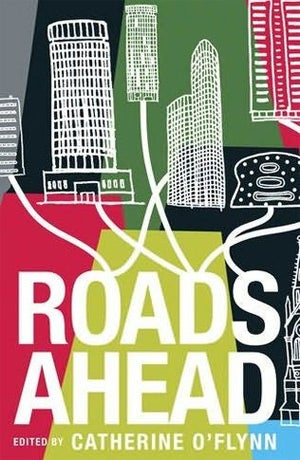Roads Ahead, Edited by Catherine O'Flynn
New talent's a cause for celebration

Your support helps us to tell the story
From reproductive rights to climate change to Big Tech, The Independent is on the ground when the story is developing. Whether it's investigating the financials of Elon Musk's pro-Trump PAC or producing our latest documentary, 'The A Word', which shines a light on the American women fighting for reproductive rights, we know how important it is to parse out the facts from the messaging.
At such a critical moment in US history, we need reporters on the ground. Your donation allows us to keep sending journalists to speak to both sides of the story.
The Independent is trusted by Americans across the entire political spectrum. And unlike many other quality news outlets, we choose not to lock Americans out of our reporting and analysis with paywalls. We believe quality journalism should be available to everyone, paid for by those who can afford it.
Your support makes all the difference.The Birmingham-based publisher Tindal Street Press was founded 10 years ago and has built a reputation as a discoverer of new talent. Some of its writers had been turned down by mainstream publishers, others are home-grown, for the most part specialising in a tough, gritty style dealing with modern urban life. In conventional publishing terms, Tindal Street has compounded the error of investing in new writers by championing the short story.
Its first book was the anthology Hard Shoulder, and it marks the 10th anniversary with another. There are richly imaginative stories in Roads Ahead, although a few others bear the impress of the creative-writing class and are written in the absurdly fashionable historic present tense.
All anthologies are mixed bags. This one has a wide range in subject matter and place, and the best stories chance their imaginative arm the most. So more than honourable mentions to Anietie Isong's "Devotion", about a Nigerian mother having to prostitute herself to secure the release of her rebel son, and to Nick Walker's "Old School Entertainment", a surrealistic take on an escapologist's outrageous performances. The longest story, and one of the best, is Luke Brown's "Borges in Buenos Aires", about crime, sex and tequila, and how to avoid reading Borges.
Violence occupies many writers: most memorably in the grotesque murder of Michelle's Singh's "Shooters", David Savill's tale, "Table Rock Lake", of a black man and his white lover who is a soldier in Iraq, and Richard Milward's doomed female narrator in "Venus in Firs". Violence is more obliquely rendered in Daisy Cains's subtle story of a childish encounter with charming IRA bombers in "Never said a Word", and Dea Brovig's tragic-comic "Ania's Wake", with an old man at his wife's funeral.
Richard Milward has already been published by Faber, but it might be a good idea for other editors to get hold of Roads Ahead and investigate its many talents. If they still do things like that.
Join our commenting forum
Join thought-provoking conversations, follow other Independent readers and see their replies
Comments